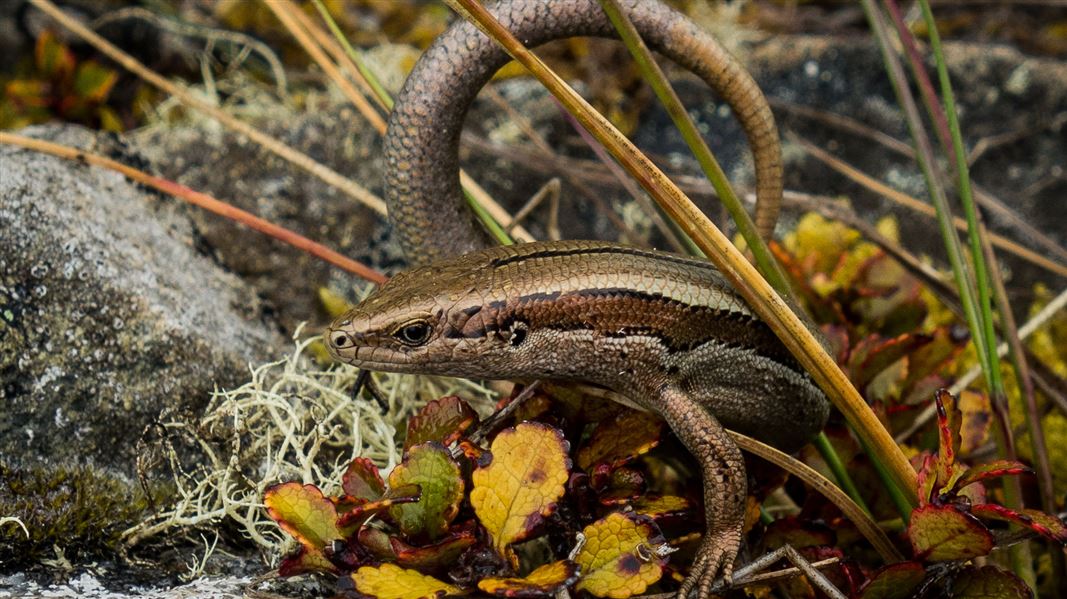Archived content: This media release was accurate on the date of publication.
Date: 10 December 2021
A skink and a gecko – found in the Mataura Range in Southland and Nelson Lakes National Park, respectively – are new to science but have yet to be formally described.
The finds have lizard experts (herpetologists) fizzing and add to what we know about Aotearoa New Zealand’s already diverse range of lizard species.
DOC Science Advisor and lizard survey project leader, Dr Jo Monks, says the intensive lizard surveys are unearthing lizards in our least explored places.
“We’re still in the ‘age of discovery’ for our lizards, and we’re likely to find more as we continue our survey work this summer.”
Over the past 30 years, the number of known lizard species has increased nearly four-fold with new discoveries.
“New Zealand has more endemic lizard species than endemic birds, so it really is a ‘land of lizards’ as well as a ‘land of birds’,” says Dr Jo Monks.
After the latest two species have been formally described, further surveys will help us learn more about them, and determine their conservation status and how to manage them.
The genetic tests have also confirmed a gecko, found for the first time in the mountains near Haast last summer, is the same as one previously known only on tiny offshore islands in South Westland. This completely changes what is known about this gecko.
Several new populations of cryptic skinks, Eyres skinks and cascade geckos were also confirmed.
In another turn-around, the so called ‘Cupola gecko’, found at Nelson Lakes 50 years ago and then again last summer, and thought to be a distinct species, has turned out to be a morphologically distinct population of forest geckos – a widespread species found in the North and South Islands.
DOC will lead further alpine lizard surveys over the next two summers, enabled by funding in Budget 2018 for work on little known species.
Makaawhio Rūnanga are also involved in lizard surveys in South Westland through the Jobs for Nature programme.
“It’s exciting to have our Mahaki Ki Taiao group leading this kaupapa in South Westland with the possibility they will discover more lizard species now their eyes are more attuned,” says Makaawhio Rūnanga Chairperson Paul Madgwick.
New Zealand has 126 gecko and skink species (counting the two new species) found nowhere else in the world. They are unique and give birth to live young, unlike many lizards elsewhere that lay eggs.
DOC welcomes information from the public about lizard sightings, especially in the alpine zone, which can lead to new findings. People are asked to take photos of the lizards and send reports with exact location information to: lizardresearch@doc.govt.nz
Background information
According to the recently updated Conservation Status of New Zealand reptiles 2021, about 90% of our skink and gecko species are listed as ‘threatened’ or ‘at risk’ of extinction and more lizard populations are in decline.
Lizards are vulnerable to a wide range of introduced predators, including mice, hedgehogs, weasels, and feral cats, in addition to rats, stoats and possums, which cause the most damage to native birds. More effective control tools need to be developed to better protect lizards from predators such as mice.
Contact
For media enquiries contact:
Email: media@doc.govt.nz
